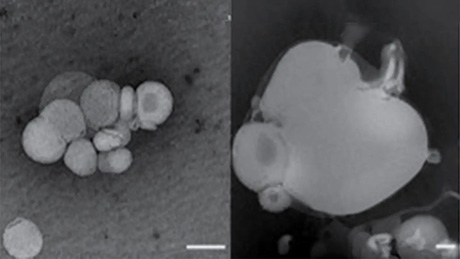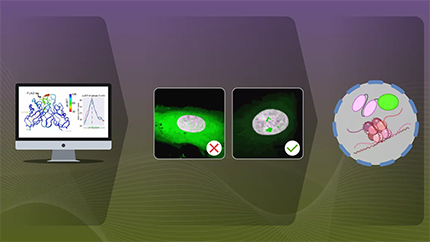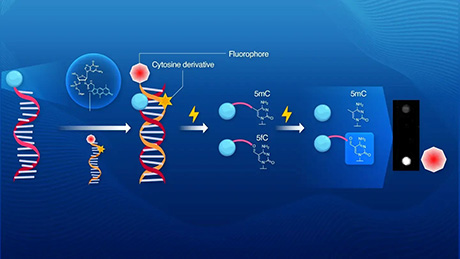Life Science and Technology News
Four teams receive first DLab Challenge research grant
Tokyo Tech's DLab has awarded four research teams with the "DLab Challenge: Laboratory for Design of Social Innovation Global Networks (DLab) Research Grant for Academic Year 2020." A ceremony was held on September 11 to present successful applicants with their notices of award.
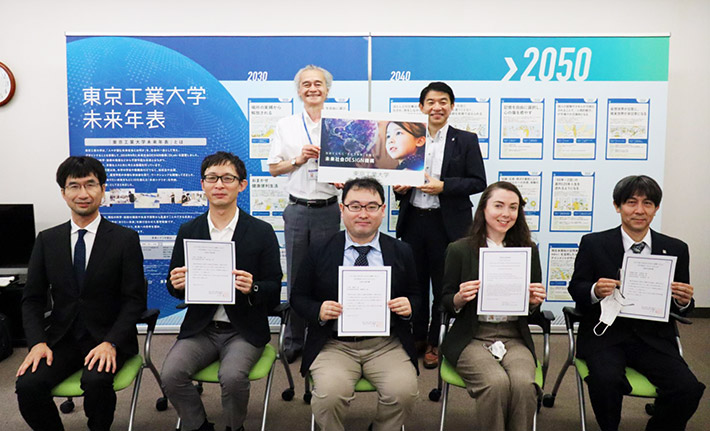
DLab Research Grant recipients (front row)
The DLab Challenge Research Grant supports research connected to the realization of the future image and scenarios created by DLab, and research that contributes to the creation of new disciplines required to realize this image.
The broader objective is to create a prosperous, more desirable future from the viewpoint of science and technology while taking into account ethical, legal, and societal perspectives.
From the 18 applications received for the inaugural grant from emerging researchers, four proposals were selected after two rounds of screening. At the September 11 event, the grantees received their notices of award from DLab Director Isao Satoh and Associate Director Naoto Ohtake, who also served as the head of the review board.
- Proposals and recipients of full grants
| Research topic | Team members and affiliations |
|---|---|
| Creation of Real-time Superimposed Projection of Machine Vision Images onto the Real World: Transcending the Limitations of Human Perception and Contributing to the Creation of a Future Society | Assoc. Prof. Yoshihiro Watanabe Assoc. Prof. Yukio Kawano |
| The Quest and Realization of Remote Control Robotic Systems Achieving Working at Home for Essential Workers | Assoc. Prof. Gen Endo Asst. Prof. Hideharu Takahashi |
| Exoskeleton for the Mind (Elemi) : Augmenting Metacognition with AI | Assoc. Prof. Katie Seaborn Asst. Prof. Jacqueline Urakami Assoc. Prof. Hiroki Oura |
| Development of Isotopomic Diagnostics | Assoc. Prof. Keita Yamada Asst. Prof. Toshiaki Tanaka Asst. Prof. Mayuko Nakagawa |
Note: Principal investigator followed by joint researchers
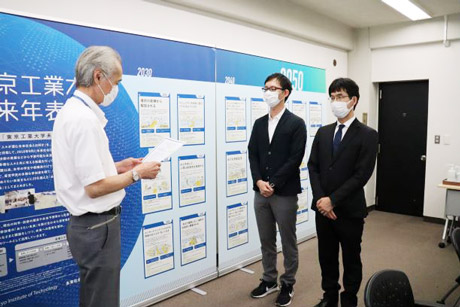
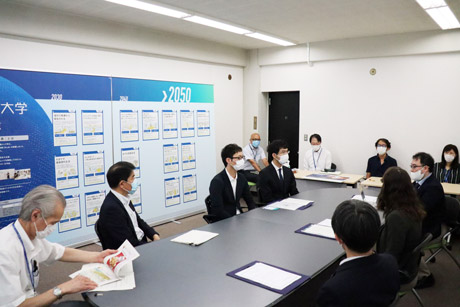
In addition to these projects, the review board selected four other proposals that demonstrated great potential. These projects were granted support for a single academic year.
- Proposals and recipients of partial grants
Note: Principal investigator followed by joint researchers, collaborators
*Collaborator
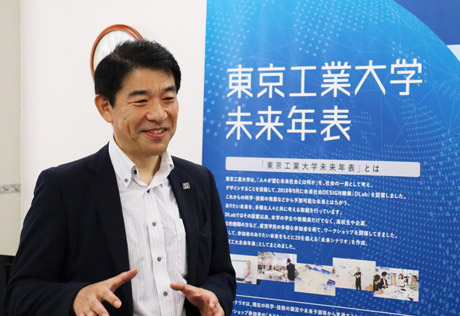
DLab Assoc. Director Ohtake, head of review board
Comments from head of the review board
Professor Naoto Ohtake
DLab Associate Director
After reviewing the 18 applications for the inaugural DLab Challenge Research Grant, the review board approved four research projects for full grants and another four for partial grants covering a single academic year. The application process included the submission of documents followed by an interview, which consisted of a presentation and a Q&A session.
During the interviews, applicants were not evaluated on past accomplishments, but rather were expected to explain clearly the relationship of their proposal to three DLab-specific components. First, how does the project contribute to the realization of DLab's future image of society, or to certain future scenarios created by DLab? Second, is the research unique and challenging, and does it adopt a long-term, future-oriented perspective? And third, what is the societal impact and significance of the research?
Both the applicants and judges had to adjust their approaches as this screening was different from other research funding applications. Applicants were expected to present from a unique perspective, while judges had to hold off on scoring until they had heard all the presentations. During the Q&A session, the review board was also looking for innovative research that is "rough around the edges" and integrates different disciplines as it develops further — something that can create a bigger movement in the future. With this approach, the review board was able to make their decisions based on common indicators.
The board selected eight research projects that reflect the unique characteristics of DLab — proposals that depict a different, more desirable future rather than an extension of existing technology. We hope the grantees and their collaborators also extend this creativity to their styles of research, and generate innovative technologies that shape the future of our world.
Fundamental research will always be part of academia. Research that adopts a shorter-term perspective can be applied to solve societal issues such as COVID-19. However, the VUCA world we currently inhabit also calls for a long-term perspective as proposed by DLab. I hope the DLab Challenge gives birth to more emerging researchers who value and advance this type of future-oriented research.
Lastly, I would like to express my gratitude to all those who were involved during the review process.
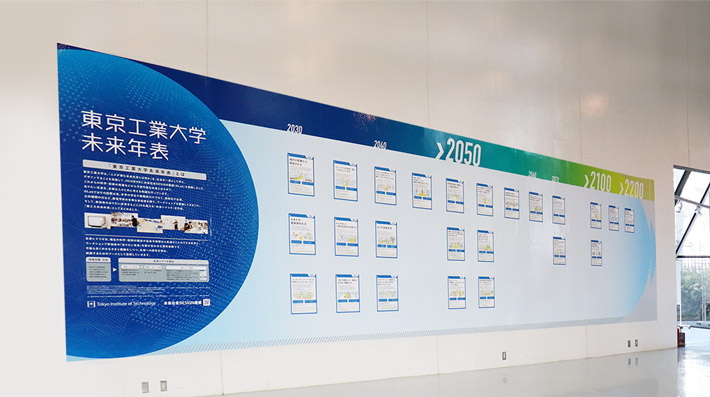
- DLab
- Stay Home, Stay Geek - DLab interviews housebound researchers during COVID-19 | Tokyo Tech News
- DLab shares vision, Tokyo Tech Future Chronology at event in central Tokyo | Tokyo Tech News
- DLab conceives future with high school students at Science Agora | Tokyo Tech News
- Emerging researchers team up with DLab to discuss future science and technology | Tokyo Tech News
- DLab members brainstorm future products and services with business figures | Tokyo Tech News
- DLab hosts Future Scenarios Workshop | Tokyo Tech News
- DLab holds successful kickoff session | Tokyo Tech News
- Designing our future in a transchallenge world | Tokyo Tech Stories | About Tokyo Tech
- Laboratory for Design of Social Innovation in Global Networks (DLab) | Offices under the President | Organization | About Tokyo Tech
Contact
Laboratory for Design of Social Innovation for Global Networks
